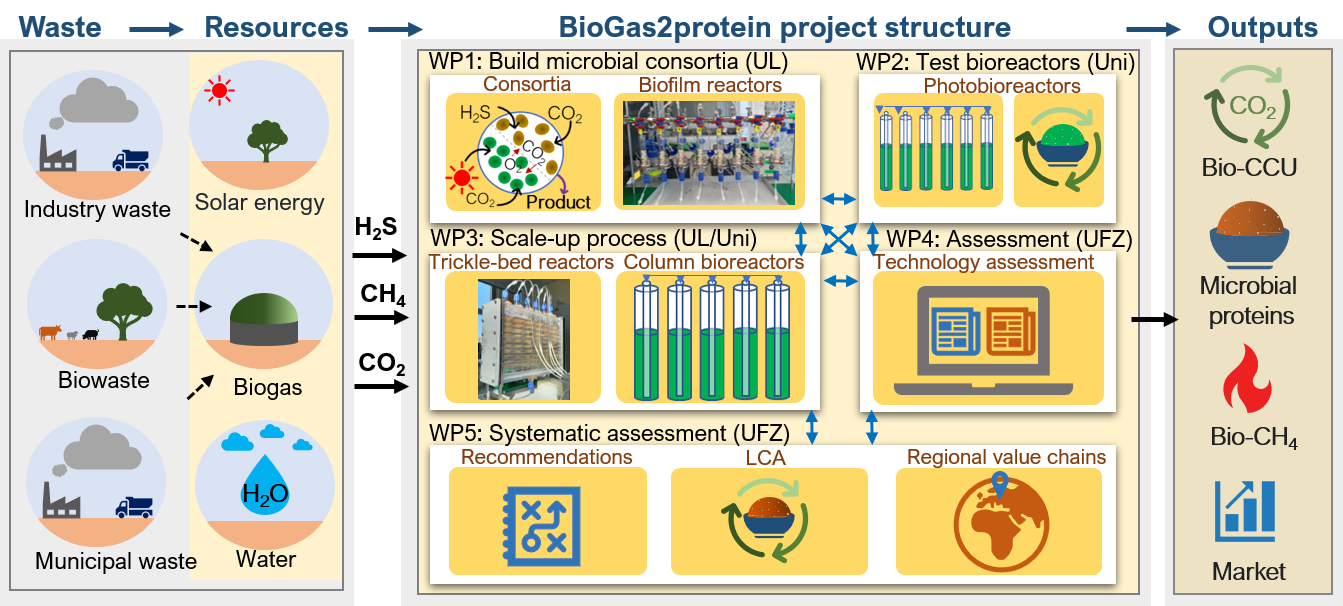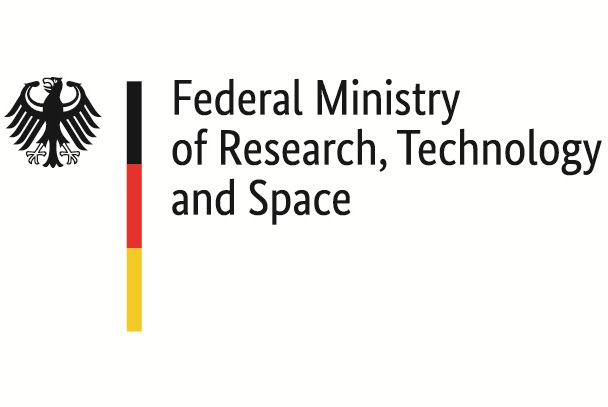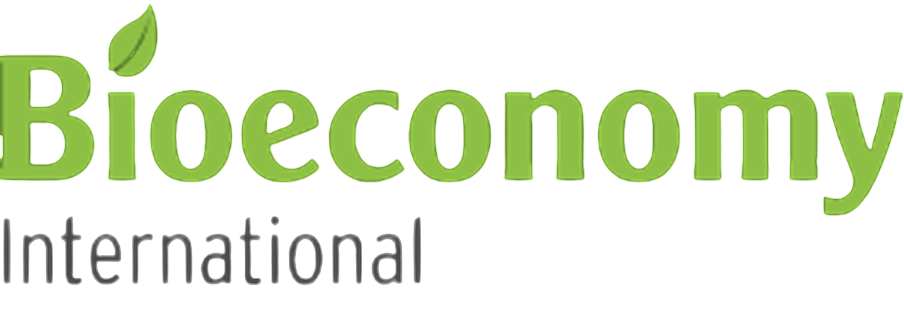BioGas2protein - Biogas upgrading and microbial protein production by enriching phototrophic and sulfur oxidizing microbial consortia
The main objective of the BioGas2protein project is to upgrade biogas by capturing waste gases (e.g., CO2, H2S) for producing microbial proteins by enriching phototrophic and sulfur oxidizing microbial consortia.
Project description:
BioGas2protein focuses on upgrading biogas by capturing waste gases like CO2 and H2S to produce microbial proteins. This is achieved through enriched phototrophic and sulfur-oxidizing microbial consortia, which involves constructing synthetic consortia to leverage the metabolic flexibility of microbial strains, developing bioprocesses using both suspended cell cultivation and biofilms in bioreactors, and evaluating the platform within sustainability and socio-economic frameworks. To achieve the outlined objectives, the project has been divided into five work packages (WPs).

WP1 focuses on developing synthetic microbial consortia and biofilm reactors for biogas upgrading and protein production by enriching microbial consortia composed of photoautotrophic strains and sulfur-oxidizing bacteria, establishing a cultivation platform for biofilms that consume CO2 and H2S, and selecting the most suitable microbial consortia. WP1 also involves characterizing the cultivation conditions and biomass production in trickle bed reactors (TBRs). WP2 will develop a photobioreactor for biogas conditioning by evaluating the performance of three microalgae species, along with a biofilter system for purification and circular management of excess biomass. WP3 focuses on scaling up the bioreactors and microbial consortia developed in previous work packages, which will be implemented and tested in Germany and Brazil. WP4 will assess the technological concepts from WP1 and WP2 from a life cycle perspective, including early-stage evaluation, modeling, optimization, and upscaling, with a focus on environmental performance, zero waste, and circularity. Finally, WP5 will conduct a systematic and holistic life cycle assessment of the technological concepts, considering regional conditions and value chains, comparing technologies, identifying key environmental impact indicators, and providing tailored recommendations.
Funding:


Project duration:
01/2025 - 12/2027
Project lead:
Prof.-Dr.-Ing. Daniela Thrän
Tel.: +49 341 6025 2840
Helmholtz Center for Environmental Research - UFZ
Permoserstraße 15
04318 Leipzig


